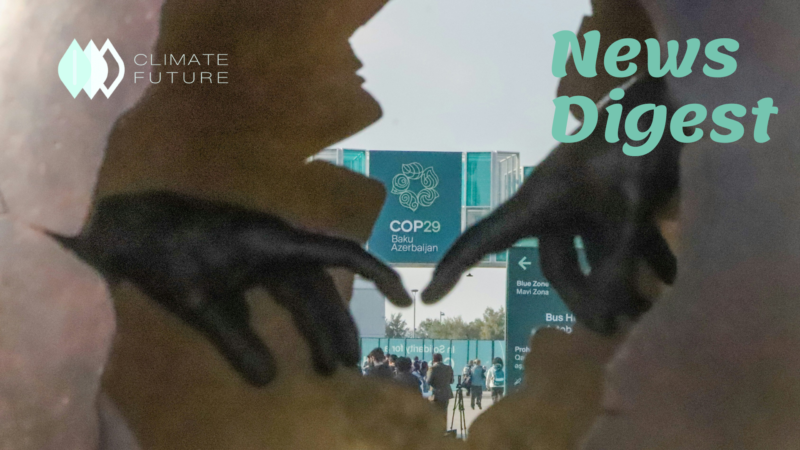Women and girls must lead battle against ‘widespread and interlinked crises’
While women are taking action to confront the climate and environmental crises, they continue to be largely excluded from the rooms where decisions are taken. Their livelihoods and nutrition are affected disproportionately by severe weather conditions and they experience the worst when local natural resources come under threat. With the rise of climate shocks, there is an evidence that links between child marriage and exploitation. When the climate disasters hit, women and children have 14 times more chances to die compared to men. The UN Chief, Mr. Guterres said that unexpected emergencies of the pollution, climate crisis, biodiversity loss and desertification make the COVID-19 pandemic and the impact of ongoing conflicts worse. He explained that gender discrimination means there is only a small proportion of women leaders. In 192 national energy frameworks, only one-third includes gender consideration especially in climate financing. The Paris Agreement addresses land degradation, biodiversity loss and pollution which is crucial to create lives for a healthy planet. Women leaders, policymakers, farmers, lawyers, economists and climate activists are essential to perform a sustainable economy and resilient society for the future. The UN is also working to support the participation of women leaders at the peace building stage through the representatives and special envoys who are promoting strategies for an inclusive peace process.
Economic effects of Lake Albert flooding ‘devastating’ for affected Ugandans
The flooding resulted in over $250,000 economic loss in Buliisa district alone which is located on the north-eastern side of Lake Albert. When the ferry from Wanseko to Panyimur, the largest fish market in the region, was canceled, the trade was impacted hugely with the loss of electricity and led to economic impact. Some people were killed when there is a rise in water level and others became homeless and had to migrate to a safe place. Majority of Buliisa’s poverty alleviation projects, connected with the shores of Lake Albert were largely disrupted while young unemployed people tried to earn money instead of facing an obstacle to fight against illegal fishing on the lake. In order to help local youth to earn money in Buliisa, the central government is proposed to provide fishing nets and other equipment to be in line with legal standards. However, it is still too expensive for most people. Flooding has a severe impact on people who are making a healthy income in the area.
UNEP combats pollution, restores ozone and protects seas, UN chief tells 50th anniversary session
Mr. Guterres launched UNEP to illustrate multilateralism works and deliver solutions for the planet and people. UNEP’s policy work, science, advocacy and coordination has supported environmental rights around the world and raised awareness of the crucial role since the environment is essential for sustainable development. He mentioned that human nature is making a war against nature with biodiversity and habitat loss, climate disruption, waste and pollution which threaten life on Earth. To solve this, the top UN Official set out four targets. The first thing is to protect the most vulnerable species whose numbers are in the billions. International cooperation is needed to be scaled up to give technical and financial support to the most vulnerable communities for better resilience. Secondly, the UN chief emphasized cutting emissions globally by 45% this decade to meet the goal of net zero emissions by 2050. All countries need to be pledged to give up coal and get financial and technological support to attempt equivalent coalitions. Halting the extinction crisis with an actionable and ambitious post-2020 biodiversity framework to make a path for human and nature harmony is the third point. The last thing is to drastically reduce plastic, chemical, solid waste pollution drastically with the aim to solve environmental degradation, particularly unsustainable production and consumption and poverty.
Push for ‘more caring, thoughtful’ relationship with nature: UN chief
The UN Secretary-General Antonio Guterres said we celebrate the wonder and beauty of our planet’s wild animals and plants each year by describing the day as a chance to celebrate the variety of flora and fauna to raise awareness of the various benefits that conservation provides to people. He highlighted that human beings rely on the essential services and products from nature such as food and fresh water apart from a moral duty to maintain the Earth. When the environment is damaged, our own well-being will also be threatened. Plants and animals that have wild nature have an intrinsic value and give the social, ecological, educational, scientific, cultural and recreational aspects of sustainable development and human well-being. The year 2022 is important for the UN Decade on Ecosystem Restoration which was started last year and run until 2030. There will be a healthy ecosystem when the component species thrive. If a keystone species disappears, the whole ecosystem can start to suffer. That is why actions to protect individual species are as crucial as restoring entire ecosystems.
Nations sign up to end global scourge of plastic pollution
The landmark resolution manages the overall lifecycle of plastic, including its design, production and disposal. Nowadays, plastic pollution has become a serious environmental problem. An Intergovernmental Negotiating Committee (INC) made the resolution, based on three initial draft resolutions from different nations with the aim to complete a draft agreement which is legally binding by the end of 2024. That is expected to reflect different alternatives to address the whole plastic lifecycle, the design of recyclable and reusable materials and products and the need for organized international collaboration to facilitate access to technology. The UN Environment Programme (UNEP) emphasized to convene a forum by the end of 2022 in conjunction with the first session of the INC to explore the best practices and share knowledge in different parts of the world. The UNEP said plastic pollution started from two million tonnes in 1950 to 348 million tonnes in 2017 with a global industry valued at $522.6 billion. It is expected that its capacity will be doubled by 2040. Over 800 coastal and marine species are affected by plastic pollution through entanglement, ingestion and other dangers when 11 million tonnes of plastic waste flow into the ocean each year. The number could triple by 2040. “End Plastic Pollution: Towards an internationally legally binding instrument” is an historic resolution adopted after the three-day UNEA-5.2 meeting with over 1500 online participants and 3400 in-person participants from 175 UN member countries, consisting of 17 high-level officials and 79 ministers.



